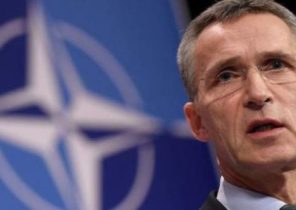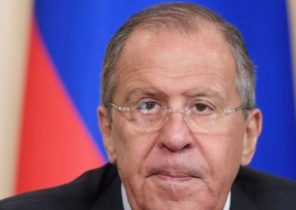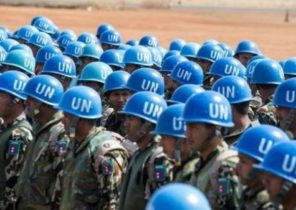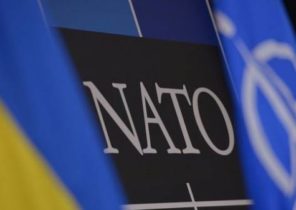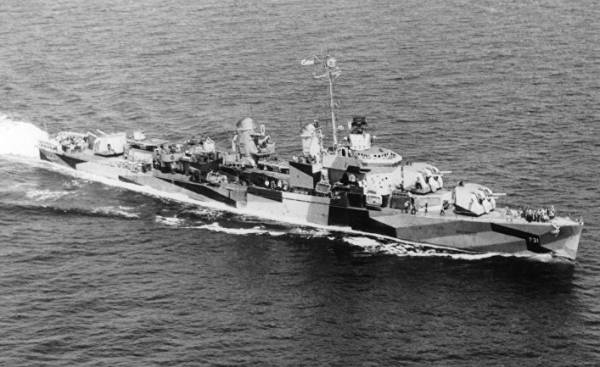
In the Syrian civil war, both Russia and the United States to pursue their own interests. Not the first time they confront each other: based on the behavior of both countries during the First world war and the cold war, it is possible to draw analogies and to draw conclusions about their possible behavior in the present.
“So majestic and Grand, was a spectacle that may morning of 1910 when nine monarchs rode in the funeral cortege at the funeral of king Edward VII of England…” Are the first lines in the book, Barbara Tuchman (Barbara W. Tuchman) “guns of August” in which she describes the involvement of world powers in the First world war.
The first world war
Disgusting propaganda and mutual recriminations have accelerated this trend. Tuchman concludes: “This was the end; time of brilliance in the past. No cheers “come on, guys!” and no one called soldiers to glory. After the first 30 days of war in 1914 had the feeling ahead of glory a little.” It was a trap from which there was no escape.
U.S. President John F. Kennedy before the Cuban missile crisis gave his staff to read the work of Barbara Tuchman. This analogy probably had a relative influence on the decisions of Kennedy in the Cuban missile crisis of 1962 when he refused a direct intervention in Cuba and kept the crisis on the brink of nuclear conflict.
The cold war
During the crisis, during the cold war, which involved the U.S. and the Soviet Union, the two superpowers avoided direct military confrontation. Throughout the cold war, the U.S. and the Red Army was not engaged in any battle. Of course, periodically the risk was high, for example, during the blockade of Berlin in 1948, construction of the Berlin wall in 1961 and the Cuban missile crisis in 1962. Political propaganda about the “expansion of imperialism and the plans of communism to conquer the world” hid these fears.
Less cautious superpower was where they made the sole influence. August 2 1964 the us destroyer “Maddox” was attacked in the Gulf of Tonkin North Vietnamese torpedo boats.
After false reports of another attack two days later the U.S. Congress by an overwhelming majority in both houses adopted the so-called Gulf of Tonkin resolution, which resulted in the United States, starting with the troops of the special forces, was involved in a decade of bloody war in South Asia.
Asia vs Latin America
The Soviet Union justified its ten-year presence in Afghanistan starting in 1979, the US in Latin America will not tolerate instability regime and the invasion of Afghanistan the Islamists will automatically lead to the extension of the sphere of influence of America in the region. USA, in turn, seen in the actions of the Soviet Union manifestation of Soviet expansion in South Asia and the Persian Gulf.
In the Syrian civil war, both Russia and USA have their own interests and special forces. The war must lead to a decision whether the Syrian regime is Pro-Russian, Pro-American or Muslim-jihadist and/or anti-Iranian. Chemical weapons, cluster bombs, suicide bombers, bombing of hospitals and civilians — all are welcome cases for the corresponding propaganda.
The analogy of giving hints on the possible course of the war. Or Russia and the United States entered the war with the danger of escalation to inter-regional level, or they realize the danger and will shy away from direct confrontation.
It is also possible that one of the powers will be involved in a long war to prevent the strengthening of the other. Muslim jihadist regime would be for both equally problematic, everyone will try at least to some extent, to maintain its influence.
The Congress of Vienna as a model
There is another analogy, which proved to be relatively successful for 100 years before the First world war (with breaks) and during the cold war in the 1970s, the years were picked up by U.S. Secretary of state Henry Kissinger (Henry Kissinger). Is the idea to use a joint powers on the model of the Congress of Vienna in 1815.
This analogy is an agreement between the great powers to jointly manage international relations and prevent a major war.
Heinz Gaertner (born in 1951) was the scientific Director of the Austrian Institute for international politics in Vienna and senior research fellow at the Institute of political science of the University of Vienna. The analyst is a University lecturer with a regular internship at Stanford University, he is also the author of “Cold war”.
